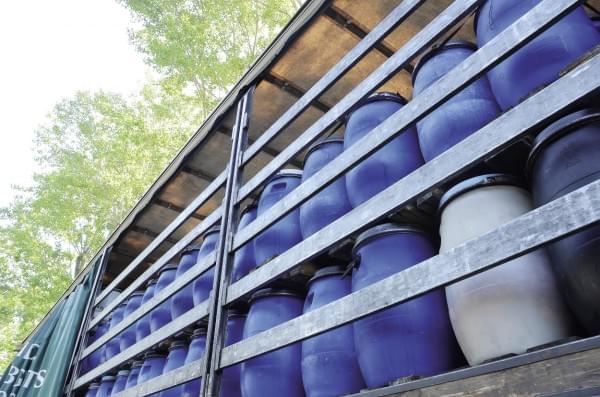Magazine: Slowly going greener
The EU waste hierarchy is more and more prevalent in Hungary too, therefore prevention, reuse and recycling are all given more emphasis. According to Anita Simon, director of Biofilter Environmental Protection Zrt., technological development and increasing demand for renewable energy shape the market. There is a growing number of market players who would like to monitor and control the full path of waste. Erik Czinger, country manager of JRK Waste Management Hungary Kft. revealed that food waste is typically taken away to a landfill or to a place where it is processed. When decisions are made, price matters the most in this field too. Norbert Höflinger, director of strategy at HWD Recycling Kft. stressed that these days there is no stable waste processing market any more. Long-term planning is basically impossible, due to the system of tenders and legislative instability.
The rules of storing, transporting and treating food waste (especially that of by-products from livestock origin) became much stricter in the last few years. In a growing number of cases shops donate food products which are about to expire to charity. Those groceries which aren’t fit for human consumption any more must be placed and selected in accordance with current regulations. Ms Simon told our magazine that they take over such waste and use it to make raw material for biogas production. Every year they deal with 30,000 tons of waste. Mr Czinger talked to Trade magazin about the GreenGood technology, which is just being introduced in Hungary. By using this technology food waste is treated on-site in just 24 hours. JRK Waste Management can help companies in many ways in using this new technology. The European Union’s F-gas regulation was published last year and it puts great burden on those who operate air conditioning systems. Mr Höflinger told that HWD Recycling Kft. can help partners in this matter, for instance by taking over the administrative tasks. Their partners can be sure that their scrapped devices are properly recycled to 100-percent.
In the market there is growing demand for complex services. Mr Höflinger explained that these days partners want advice and continuous communication. HWD Recycling is constantly searching for the latest recycling technologies and partners. Partners’ waste is recycled to 98 percent, which means that they can profit more and more from their waste too. Ms Simon underlined that the two members of the group Biofilter Zrt. and Greenpro Zrt. work together in taking over and processing organic waste from partners. 100 percent of the waste they manage is recycled. Mr Czinger’s view is that despite the many campaigns to fight food waste, the attitude of companies is still in an early stage of development. However, there are positive examples too, for instance Unilever sends nothing to landfills.
Biofilter Zrt. takes over used cooking oil and food waste from restaurants and cafeterias. In addition to this, they also sell cooking oil to kitchens. Greenpro Zrt. is a specialist of dealing with expired food products and by-products from livestock origin. From the used cooking oil the group makes organic diesel fuel, while 100 percent of the food waste is turned into biogas. They also help partners in making their food waste and by-product declarations. Future plans include making partners more environmentally conscious and introducing new renewable solutions.
HWD Recycling Kft. offers a complex service to partners from the FMCG sector. They think waste represents value and if managed well, it can generate profit. At the moment demand is the biggest for managing waste from air conditioning and industrial cooling devices. The company is happy to see that more and more partners want complex waste management services from them. They keep expanding the catalogue of the waste they take over , which is available in both print and online (www.e-hulladek.hu) formats.
JRK Waste Management Hungary Kft. calls our attention to the use of electric composter: with the help of this device they can reduce the volume of food waste by nearly 90 percent and transportation frequency can be minimised. It is very easy to operate this equipment and it fully complies with the regulations. At the moment electric composters are available in three sizes, from which GG02 is the most popular, which can process 5.5kg of waste a day. The biggest version processes 1.5 tons in just 24 hours.
Related news
Related news
MOHU: 5,200 return points are in operation, but 47 larger settlements still do not have RE points – public “enema” machines may be introduced
🎧 Hallgasd a cikket: Lejátszás Szünet Folytatás Leállítás Nyelv: Auto…
Read more >GDP growth in OECD member countries slowed to 0.3 percent in the last quarter of last year
🎧 Hallgasd a cikket: Lejátszás Szünet Folytatás Leállítás Nyelv: Auto…
Read more >





